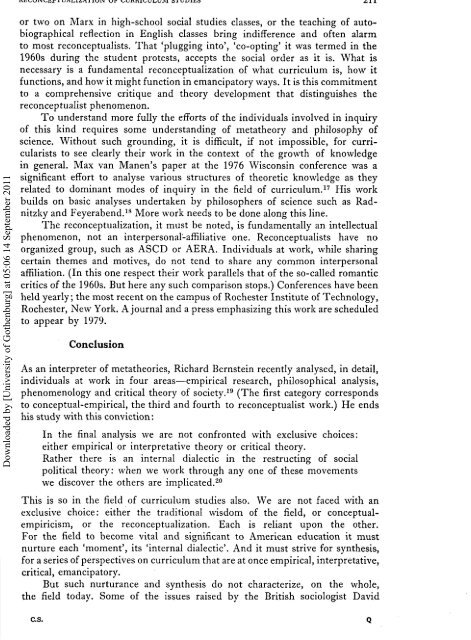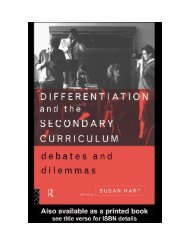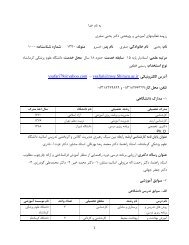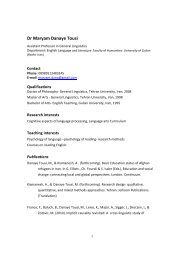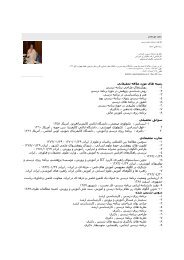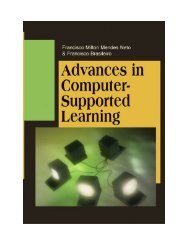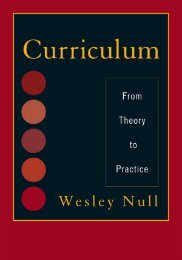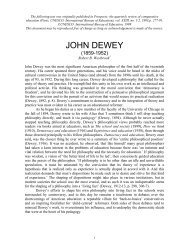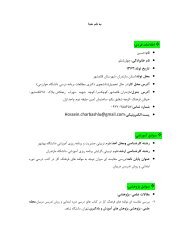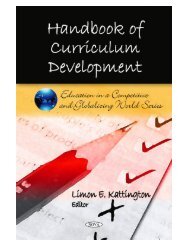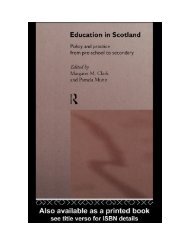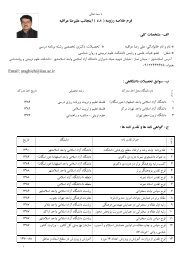The Reconceptualisation of Curriculum Studies
The Reconceptualisation of Curriculum Studies
The Reconceptualisation of Curriculum Studies
Create successful ePaper yourself
Turn your PDF publications into a flip-book with our unique Google optimized e-Paper software.
RECONCEPTUALIZATION OF CURRICULUM STUDIES 211<br />
Downloaded by [University <strong>of</strong> Gothenburg] at 05:06 14 September 2011<br />
or two on Marx in high-school social studies classes, or the teaching <strong>of</strong> autobiographical<br />
reflection in English classes bring indifference and <strong>of</strong>ten alarm<br />
to most reconceptualists. That 'plugging into', 'co-opting' it was termed in the<br />
1960s during the student protests, accepts the social order as it is. What is<br />
necessary is a fundamental reconceptualization <strong>of</strong> what curriculum is, how it<br />
functions, and how it might function in emancipatory ways. It is this commitment<br />
to a comprehensive critique and theory development that distinguishes the<br />
reconceptualist phenomenon.<br />
To understand more fully the efforts <strong>of</strong> the individuals involved in inquiry<br />
<strong>of</strong> this kind requires some understanding <strong>of</strong> metatheory and philosophy <strong>of</strong><br />
science. Without such grounding, it is difficult, if not impossible, for curricularists<br />
to see clearly their work in the context <strong>of</strong> the growth <strong>of</strong> knowledge<br />
in general. Max van Manen's paper at the 1976 Wisconsin conference was a<br />
significant effort to analyse various structures <strong>of</strong> theoretic knowledge as they<br />
related to dominant modes <strong>of</strong> inquiry in the field <strong>of</strong> curriculum. 17 His work<br />
builds on basic analyses undertaken by philosophers <strong>of</strong> science such as Radnitzky<br />
and Feyerabend. 18 More work needs to be done along this line.<br />
<strong>The</strong> reconceptualization, it must be noted, is fundamentally an intellectual<br />
phenomenon, not an interpersonal-affiliative one. Reconceptualists have no<br />
organized group, such as ASCD or AERA. Individuals at work, while sharing<br />
certain themes and motives, do not tend to share any common interpersonal<br />
affiliation. (In this one respect their work parallels that <strong>of</strong> the so-called romantic<br />
critics <strong>of</strong> the 1960s. But here any such comparison stops.) Conferences have been<br />
held yearly; the most recent on the campus <strong>of</strong> Rochester Institute <strong>of</strong> Technology,<br />
Rochester, New York. A journal and a press emphasizing this work are scheduled<br />
to appear by 1979.<br />
Conclusion<br />
As an interpreter <strong>of</strong> metatheories, Richard Bernstein recently analysed, in detail,<br />
individuals at work in four areas—empirical research, philosophical analysis,<br />
phenomenology and critical theory <strong>of</strong> society. 19 (<strong>The</strong> first category corresponds<br />
to conceptual-empirical, the third and fourth to reconceptualist work.) He ends<br />
his study with this conviction:<br />
In the final analysis we are not confronted with exclusive choices:<br />
either empirical or interpretative theory or critical theory.<br />
Rather there is an internal dialectic in the restructing <strong>of</strong> social<br />
political theory: when we work through any one <strong>of</strong> these movements<br />
we discover the others are implicated. 20<br />
This is so in the field <strong>of</strong> curriculum studies also. We are not faced with an<br />
exclusive choice: either the traditional wisdom <strong>of</strong> the field, or conceptualempiricism,<br />
or the reconceptualization. Each is reliant upon the other.<br />
For the field to become vital and significant to American education it must<br />
nurture each 'moment', its 'internal dialectic'. And it must strive for synthesis,<br />
for a series <strong>of</strong> perspectives on curriculum that are at once empirical, interpretative,<br />
critical, emancipatory.<br />
But such nurturance and synthesis do not characterize, on the whole,<br />
the field today. Some <strong>of</strong> the issues raised by the British sociologist David<br />
C.S.<br />
Q


